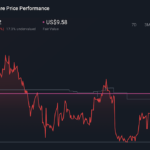
(Bloomberg) — South Korea’s unemployment rate fell to the lowest level in one year in July, suggesting the labor market is holding up on government support amid a surge in infections and tighter restrictions.
The jobless rate declined to 3.3% from 3.7% in June, the statistics office said Wednesday. Economists had expected a slight increase to 3.8%. The economy also added 542,000 positions from a year earlier, a fifth straight month of gains, although employment growth slowed from a monthly average of around 600,000 in the April-to-June period.
Resilience in the job market gives the Bank of Korea some breathing room as it prepares to raise its record-low interest rate as early as this month. Analysts had expected the labor market to take a hit after the government placed Seoul under semi-lockdown in early July.
But government support including a 34.9 trillion won ($30.2 billion) extra budget passed last month is helping to buffer the impact of the latest outbreaks. The figures also got a boost from fewer people looking for work, with the labor force participation rate slipping to 62.7% in July from 63.0% the previous month.
Finance Minister Hong Nam-ki, writing in a Facebook post after the jobs report, said the economic effect of the latest virus wave is likely to hit from August and that fiscal support would continue to hold up the labor market.
Just 15% of South Korea’s population has been fully vaccinated, leaving the country vulnerable to further virus flareups and extended restrictions. Tighter social-distancing rules were extended beyond the Seoul metropolitan area in late July.
What Bloomberg Economics Says…
“We doubt the surprise resilience in South Korea’s July job data reflects genuine strength in the labor market. A drop in the labor force participation rate suggests workers are waiting out the latest virus wave, and the bulk of employment gains continued to be driven by public-sector job creation efforts.”
–Justin Jimenez, economist
To read the full report, click here.
Korea has so far relied heavily on exports to drive economic growth during the pandemic, but a further fillip from overseas demand may prove difficult if the global picture worsens. This makes it all the more important that the job market holds up and supports household spending.
Last month’s employment gains were led by the health and social service sector, which added 237,000 positions. The sector encompassing public administration, defense and social security also saw increases of 91,000 jobs. Transportation and warehouse businesses gained 121,000 positions.
The retail and wholesale industry lost 186,000 jobs while the restaurant and lodging sector shed 12,000 positions.
(Adds comments from the finance minister.)
More stories like this are available on bloomberg.com
Subscribe now to stay ahead with the most trusted business news source.
©2021 Bloomberg L.P.






